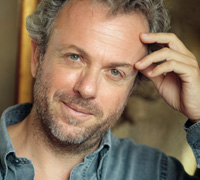
Об авторе
3 June 1962. Birth in Madagascar.
1964. His parents return to France and move to the country to raise their four children, born in Morocco and Madagascar.
1970-1979. He moves to Paris. An unruly student, he is particularly ill-disposed to doing schoolwork and is sent to three different lycées (Victor Duruy, Buffon, Camille Sée). As a teenager he reads Hesse and Dostoyevsky, kindling his interest in existential questions. At 15 he develops a passion for philosophy after reading Plato’s Dialogues, and in astrology from reading books by André Barbault.
1980-1985. The Swiss psychologist Carl Gustav Jung has a profound effect on his intellectual direction, triggering a desire to study mankind’s great myths and religions. After an early fascination with Asian spirituality, in particular Tibetan Buddhism, discovered through the work of Chogyam Trungpa, he develops an interest in the Kabbalah and begins taking classes in the symbolism of Hebrew letters. He has no particular interest in studying Christianity, however. His Catholic upbringing, although very liberal, had focused too much on dogma and morality. Then, at 19, he reads the Gospels for the first time, and is amazed by them. He begins studying philosophy at the University of Fribourg, in Switzerland, with his childhood friend Emmanuel Rouvillois, who later becomes a monk by the name of Brother Samuel; there, he meets two crucial and outstanding professors: the Dominican philosopher Marie-Dominique Philippe (with whom he writes a book of interviews, Les trois sagesses, in 1994) and the philosopher and Talmud scholar Emmanuel Lévinas who, as a testament, leaves him a fine text on ethics in his book Le Temps de la responsabilité (1991). Parallel to his philosophy studies, he goes on a personal spiritual quest that leads him to spend several months in Israel and India, as well as in Christian hermitages and monasteries in France.
1986. As editor of the religion department at Editions Fayard, he publishes several books examining philosophical and spiritual themes.
1991. He resigns from his position as editor to devote more time to academic research and writing, and begins work on a doctoral thesis on Buddhism in the West at the Ecole des Hautes Etudes en Sciences Sociales.
1992. Passionate about ecological issues, he helps found the association ‘‘Environnement sans frontières.’’ In 2003 he publishes a book of interviews with his friend Hubert Reeves, who sounds the alarm on the risks threatening the planet. (Mal de Terre).
1994. He is appointed associate researcher at the Ecole des Hautes Etudes en Sciences Sociales (EHESS). Following in the footsteps of Edgar Morin, one of his intellectual mentors, he takes on the issue of religion in a multi-disciplinary approach combining philosophy, sociology and history.
1997. He writes l’Encyclopédie des religions, conceived and compiled with Ysé Tardan-Masquelier, (2500 pages, 2 volumes, 150 collaborators).
1996-2000. He writes for L’Express on a regular basis.
1998. He writes and directs an international study about sects for television with Lolande Cadrin-Rossignol. The documentary series, entitled ‘‘Sectes, mensonges et idéaux’’ (‘‘Sects, Lies and Ideals’’), is broadcast in France on the Cinquième channel and in numerous other countries. He also co-writes a documentary about the Dalai Lama that is broadcast on Canal +, and a series of three 52’ episodes on the Cinquième channel entitled ‘‘Dieu a changé d’adresse’’ (‘’God has changed his address’’).
1998-2005. He writes a number of books − some alone, others with Catherine David and Jean-Philippe de Tonnac − of interviews with such diverse figures as Abbé Pierre, Umberto Eco, Stephen Jay Gould, Jean Vanier, Hubert Reeves and Jean-Claude Carrière.
1999. He has his doctoral thesis viva at EHESS (summa cum laude, under the direction of Danièle Hervieu-Léger). It is published in two parts: Le bouddhisme en France and La Rencontre du bouddhisme et de l’Occident.
2001. He writes a philosophical tale, Le secret.
2002. He writes Le Livre des sagesses (2000 pages, 60 authors) with Ysé Tardan Masquelier.
2001-2003. He writes a column for Psychologies Magazine.
2003. He writes a synthesis of his research on religion in the modern world in an essay entitled Les métamorphoses de Dieu, awarded the ‘’Prix européen de langue française.’’
2003. He writes the first of 4 volumes of the comic book series La prophétie des deux mondes (drawings by Alexis Chabert).
March 2004. He writes a historical thriller with Violette Cabesos entitled La Promesse de l’ange, which is awarded the ‘‘Prix des maisons de la presse’’ and is a bestseller in France (200 000 copies) and abroad (translated in 12 countries including the USA).
July 2004. He becomes director of Le Monde des religions, a bimonthly magazine published by the firm La Vie - Le Monde, which takes a secular and cultural approach to religious issues.
September 2004. He writes l’Encyclopédie des savoirs et des croyances sur la mort et l’immortalité (with Jean-Philippe de Tonnac), totalling 1200 pages and involving 60 collaborators.
November 2004. He writes Code da Vinci, l’enquête with Marie-France Etchegoin. The book, which deciphers Dan Brown’s bestseller, is an enormous success (300 000 copies in France) and is translated into twenty languages.
2005. He writes Mon Dieu…Pourquoi ? a book of interviews with Abbé Pierre that causes quite a stir inside the Church. The book is highly successful in France and in a number of other countries.
Avril 2006. He launches a new series with Editions Plon, ‘‘Petite bibliothèque des spiritualités,’’ publishing ten volumes between April and October 2006. Eight new volumes will be published every year starting in 2007.
September 2006. Le Monde des Religions celebrates its third anniversary. Checked by the OJD (Audit Bureau of Circulation), its circulation increases by 27% in 2005 and continues to rise in 2006, enabling the magazine to break even for the first time with a profitable circulation of over 63 000 copies.
October 2006. He writes l’Oracle della Luna, a novel full of love and adventure, as well as an initiatory thriller, which takes place during the Renaissance.
Counting all the various publications and genres (novels, essays, encyclopaedias, interviews, comic books, etc.), Frédéric Lenoir has sold just over two million books in 25 countries. He divides his time between Paris and his house in Normandy, where he writes. He is currently working on his next novel, a philosophical essay, and on a screenplay.
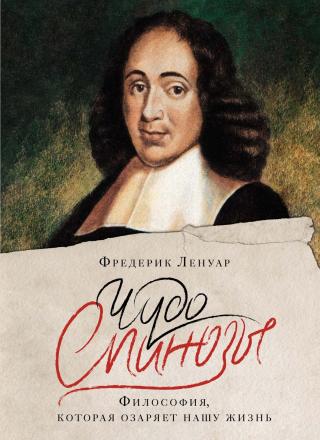
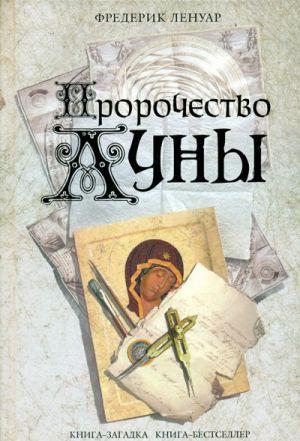

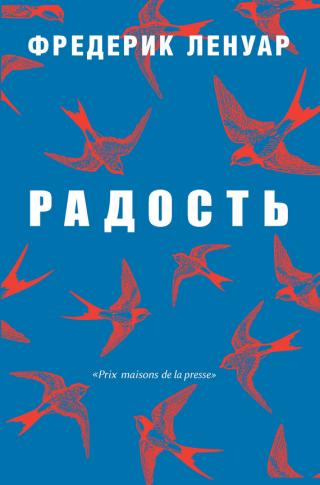
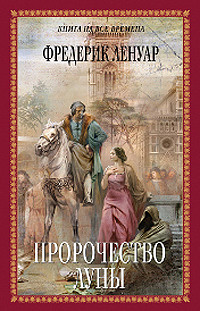
Комментарии и оценки к книгам автора